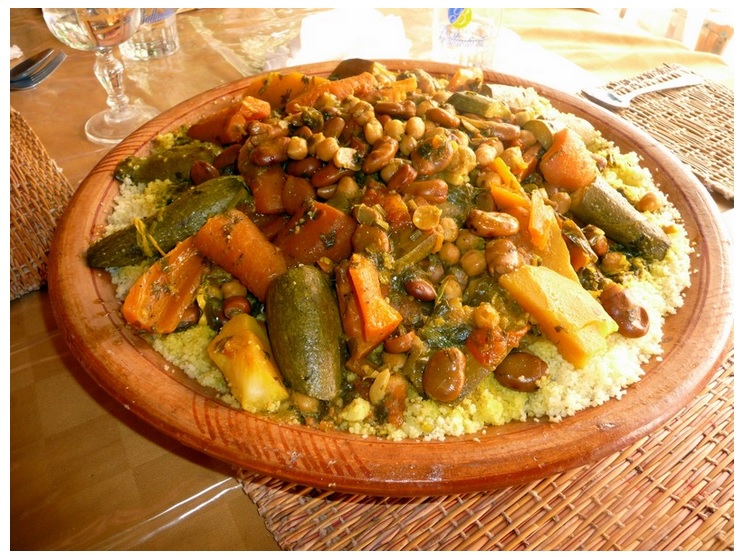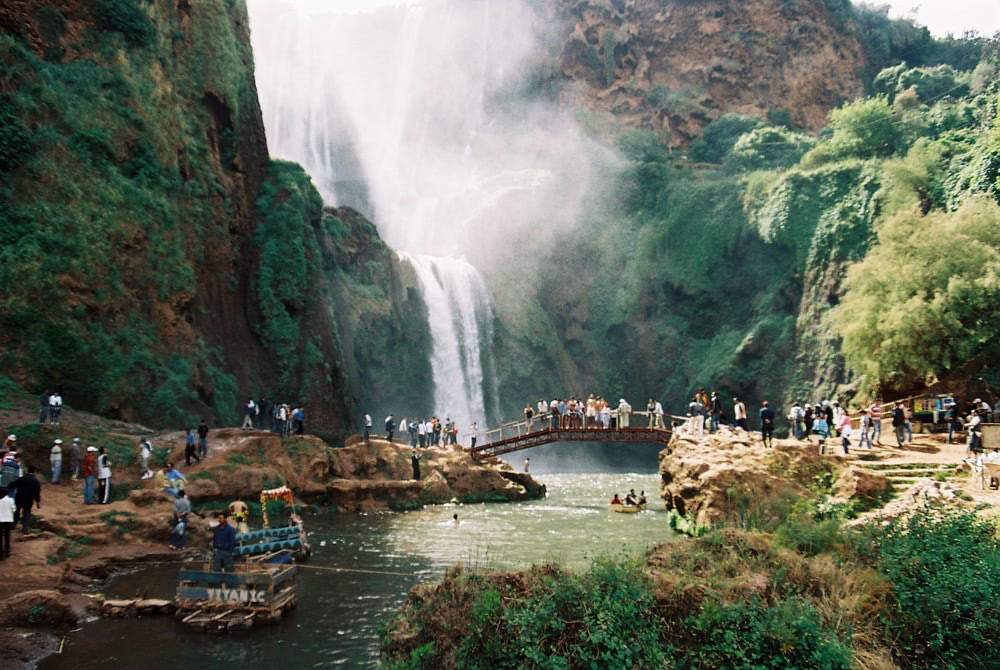![Crans Montana Forum4]()
By Samir Bennis
New York- Former Spanish Prime Minister Jose Luis Rodriguez Zapatero’s visit to Morocco and his participation in the Crans Montana Forum in Dakhla can be considered a political victory for Moroccan diplomacy, as it carries with it the recognition by Spain’s former highest executive authority of Morocco's sovereignty over the so-called Western Sahara and its historical rights over the territory.
What gives his participation special importance is that this implicit recognition comes from the former colonial power of southern Morocco, and reflects the willingness of many of Spain’s political elite to redress the historical damage wrought by Spanish colonialism on Morocco.
To understand the great importance of this visit, one has to take into consideration the initial position of Spain’s Socialist Party (PSOE) in the mid and late 1970s, when its leaders were keen on providing support for the Polisario and defending the independence of the ‘Western Sahara’ from Morocco.
However, with the passage of time and the strengthening of economic, political, and strategic ties between Rabat and Madrid since the advent of the first socialist government headed by Prime Minister Felipe Gonzalez beginning of 1982, a number of the party’s leaders started changing their stance towards this issue. One of the reasons that prompted the PSOE’s leaders to soften their position and be progressively inclined to support Morocco, albeit implicitly, is the second-to-none strategic importance that Morocco represents for Spain.
This strategic relationship has been reinforced over the years, enabling the two countries to strengthen their economic, commercial, and political ties. They have sought to nullify all negative factors that have affected them in the past, such as the question of fisheries in the 1980s and 1990s, the issue of Ceuta and Melilla, the Western Sahara, and illegal immigration.
Nearly four decades after Moroccan-Spanish relations entered a new era following the establishment of democracy in Spain, Morocco became an indispensable strategic partner for Spain in many areas. Rabat’s importance for Madrid lies not only in the fact that Spain is Morocco’s first or second economic partner, or that Morocco is Spain’s top economic partner outside the European Union and after the United States, but in the crucial role Morocco plays to help its northern neighbor in the fight against extremism and terrorism.
Additionally, Rabat has played a pivotal role helping Madrid effectively address the phenomenon of illegal immigration and narcotics trade coming from sub-Saharan Africa, especially since 2004. Thanks to the remarkable evolution of relations between the two countries, especially during the past decade, Spain has been able to reduce the large number of illegal immigrants arriving at its coasts.
Even if we assume that it is not spontaneous that the Spanish political leaders’ positions are in favor of Morocco or are positively neutral regarding the Sahara, the great importance that Morocco has come to represent in Spain’s foreign policy has prompted them to adopt positions that are in Morocco’s favor, or at least that are neutral or not hostile to its interests.
Morocco’s Political Leverage
Morocco has a number of political ‘cards’ it can use to put pressure on Spain, especially in regards the issue of cooperation in the fight against illegal immigration. Past experiences have taught Spanish officials that they have to take the interests of their southern neighbor into account in any step they take. Otherwise, Rabat might be pressed to retaliate by using the cards it has at its disposal.
For example, when Spanish civil guards apprehended and searched the boat carrying King Mohammed VI in the territorial waters of the occupied city of Ceuta on August 7, 2014, the Moroccan government did not protest officially to Spain, but it conveyed a silent message by using one the political cards it has. A few days after the incident, Moroccan authorities decided to turn a blind eye to the avalanche of illegal immigrants who were trying to reach Spanish territory, demonstrating their displeasure with Spain’s actions.
As a result, for two days, on August 11 and 12, 2014, 113 makeshift boats arrived at the Spanish coast carrying 1,409 would-be immigrants, according to Spanish daily El Mundo in its August 29, 2014 issue. This sudden and unprecedented surge in the arrival of illegal immigrants caused a state of panic in Spain.
To gauge the importance that Moroccan cooperation in the fight against illegal immigration represents for Spain, one has to bear in mind that the total number of illegal immigrants who arrived on Spanish territory during the first quarter of 2014 did not exceed 2,500. But in as little as two days without Moroccan cooperation, the number of illegal arrivals reached 60% of total arrivals for 3 months. This sudden surge in the number of illegal boats arriving in Spanish territory prompted the Spanish government to reach out to its Moroccan counterpart for assistance.
During the meeting held between the Spanish Interior Minister, Jose Fernandez Diaz, and his Moroccan counterpart, Mohammed Hassad, in Tetouan on August 27, 2014, he expressed his gratitude to Morocco for its cooperation with Spain in the fight against illegal immigration and its prompt response to the request of the Spanish government, which helped to restore the situation to normal.
One can just imagine the damage that could be caused to Spain in terms of security, economics, and society, if Morocco decides to stop cooperating with Spain in fighting illegal immigration, not to mention its cooperation in fighting terrorism.
The measure taken by Rabat in August 2014 has served as a message to the Spanish authorities that Madrid has to respect Morocco’s symbols of sovereignty and deal with it based on the principle of mutual respect and without prejudice to the interests of the other party, and that any lack of consideration in this regard may affect the health of cooperation between the two countries in various critical areas.
Spain’s tacit support to Morocco
On the other hand, contrary to what a number of media outlets (especially Algerian media) have been trying to suggest, the statement made by Spanish Foreign Minister Jose Manuel Gasia Margallo regarding Zapatero’s participation in the Crans Montana Forum in Dakhla, this statement does not deviate from the traditional practice followed in this regard. It is common for governments to distance themselves with measures made by an opposition party, especially if it does not reflect the official position of the government regarding any conflict.
In this case, Margallo did not denounce or condemn what Zapatero has done. His statement was confined to a request for clarification from the Socialist Party. He also did not state that the organization of the Crans Montana Forum in Dakhla is "contrary to international legitimacy.” During his press conference on the matter, he limited himself to quote a communiqué of the African Union, which was sent to many the capitals around the world urging them to boycott that forum.
In addition, the Spanish Foreign Minister was aware of Zapatero’s visit and did not take any steps to dissuade him from doing so. If there were a shift in Spain’s official position regarding the Western Sahara, the Spanish Foreign Minister would have prevented the former Prime Minister from participating in the Crans Montana Forum, or at least condemn it publicly.
However, the tone Margallo used regarding Zapatero’s move suggested that he might have given his tacit approval to the former head of Spanish government to go to Dakhla. This approval can be construed as being the result of the consensus reached by Spain’s political elite with the passage of time about the critical importance of maintaining and strengthening their country’s strategic relationship with Morocco.
Stemming from his position as Spain’s chief diplomat, it is normal that Margallo make a statement to dissipate any suspicion or the complicity of his government with regards to Zapatero’s presence in Dakala, and also give the impression to large sectors of Spanish public opinion, which is supportive of the Polisario, that Madrid’s position on the conflict is in line with international law and the United Nations’ efforts to help the parties to reach a just, political, and mutually acceptable solution to the conflict.
The controversy that some in the Algerian media have tried to create about Spain’s Foreign Minister’s statement about the presence of Zapatero is but whirlwind in a cup, for Margallo’s statement does not reflect any hostile attitude from Spain towards Morocco regarding its territorial integrity. Although Spain avoids making any statement that may reflect its support for Morocco, it is taking steps that are in its favor, or at least don’t conflict with its interests.
In addition, a number of steps taken by the Spanish authorities in the past few years suggest that they support the Moroccan position in silence, and are not prepared to sacrifice their strategic relations with Morocco for the sake of supporting the Polisario.
The decision of the ruling Popular Party in February to abort a request submitted by some parties in the Spanish parliament demanding that the Spanish government provide political asylum to Aliaa Hassan, one of convicted in the case of Kdim Izik, in the Moroccan city of Laayoune in November 2010, proves that Madrid takes Morocco’s interests and concerns into account and avoids making any a move that could have a negative impact on its relations with Rabat.
The attempts made by the Polisario, the Spanish and other foreign non-governmental organizations to pressure on Madrid into taking a stance in in favor of the Polisario have failed. Despite the impression given by Spain that it does not provide any support for Morocco, its actions suggest that it supports Morocco behind the scenes.
By virtue of its membership in the Group of Friends of the Western Sahara, which also includes France, the United States, the United Kingdom, and Russia, Spain played an important role in April 2013 in persuading the United States to amend the draft resolution submitted to the Security Council, in which Washington had initially called for the expansion of the MINURSO’s mandate in the Sahara to include a human rights monitoring mechanism.
And there is no doubt that Morocco relies on Spain, which is a non-permanent member of the Security Council (2015-2016), to ensure that the UN body does not take any steps that would be detrimental to Moroccan interests regarding the approach that should be followed in order to reach a just, political, and mutually acceptable solution to the conflict.
© Morocco World News. All Rights Reserved. This material may not be published, rewritten or redistributed without permission
The post Why Zapatero’s Presence in Dakhla is a Political Victory for Morocco appeared first on Morocco World News.



































